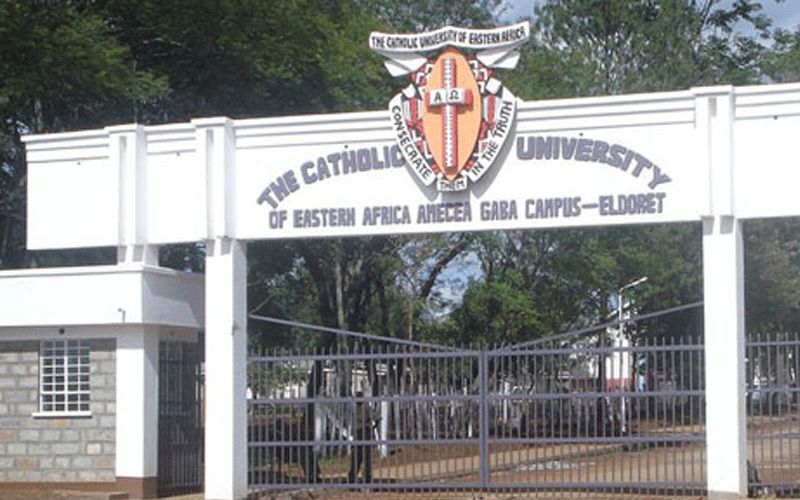Catholic University of Eastern Africa (CUEA) and Tangaza University College (TUC) in Kenya’s capital, Nairobi are among Catholic institutions of higher learning that have adhered to President Uhuru Kenyatta’s directive to suspend physical learning until further notice.
“I hereby inform you that the University Management and Senate has resolved to suspend all on-site learning and non-critical operations at the Lang'ata and Gaba Campuses with immediate effect,” reads part of a circular addressed to the community at the Nairobi-based Catholic University of Eastern Africa (CUEA).
In the March 16 statement seen by ACI Africa, the suspension “will remain until further directive from the Government.”
Signed by the Vice-Chancellor, Fr. Stephen Mbugua, the statement also notifies the Institution’s stakeholders that “only critical services at the University will remain operational supported by minimum staff.”
With approximately four weeks of teaching remaining before the examinations period and the need to ensure continuity in learning as per the University calendar, the institution that is owned by the Association of Member Episcopal Conferences in Eastern Africa (AMECEA) has committed itself to ensuring that “lecturers upload class notes and assignments to students via the online platform.”
(Story continues below)
To ensure the success of this virtual learning arrangement, the institution has, in the two-page circular, requested for collaboration between the students and the lecturers.
“We urge all our International Students and Staff to keep their respective families and guardians updated on their safety and health status, intercountry travel is discouraged but, if you must travel please confirm the travel and entrance requirements back into your country,” the statement has advised and added, “The Dean of Students, Security and HR Offices will be at hand to assist where they can.”
The move to suspend physical learning comes days after the management of the university asked lecturers to prepare online learning materials, as a precautionary measure in case COVID-19 would lead to closure of educational institutions.
In a March 9 memo, CUEA Vice Chancellor, Prof. Mbugua directed the teaching staff to “develop online teaching modules for all the units they are teaching this semester so that they can be uploaded to the university’s academic online platform.” The modules were to be submitted to the Blended Programmes Office by March 20.
Similarly, the Nairobi-based Catholic Institution of higher learning, Tangaza University College (TUC) also suspended physical classes and opted for virtual learning.
In a March 16 memo to the TUC community, the Vice Chancellor Designate, Prof. David Wang’ombe stated, “Physical classes are suspended effective, Tuesday, 17th March 2020. In their place, virtual classes will take place using google classroom and Moodle platforms until further notice.”
In the one-page memo, the constituent college of CUEA that is jointly owned by 22 Religious Orders announced that offices will remain closed, though “discretion will be exercised for key services that will be needed.”
“The end of semester examinations will be done once the university reopens,” the memo added.








